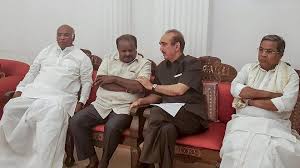Even minutes after the United Nations Security Council pushed Syrian regime’s backer Russia to agree to a ceasefire, the bombardment of eastern Ghouta, a suburb of Damascus, still continued.According to a UK based monitor called Syrian Observatory for Human Rights, the regime has killed over 500 people in less than a week. The regime calls it a lie, but the locals from Ghouta say Assad has been raining lethal barrel bombs, among other ammunition, on 350,000-400,000 remaining inhabitants of Ghouta, shoving them underground.
The regime first imposed a siege in the area, ringing the capital in May 2013. Albeit at prices ten times higher than in Damascus, basic materials like food and fuel were supplied through the al-Wafideen opening. Rebels also dug tunnels leading to Damascus to smuggle in the goods. Since late last year, the siege has been absolute. Syrian forces bombed the tunnels and sealed Wafideen.
Read More









